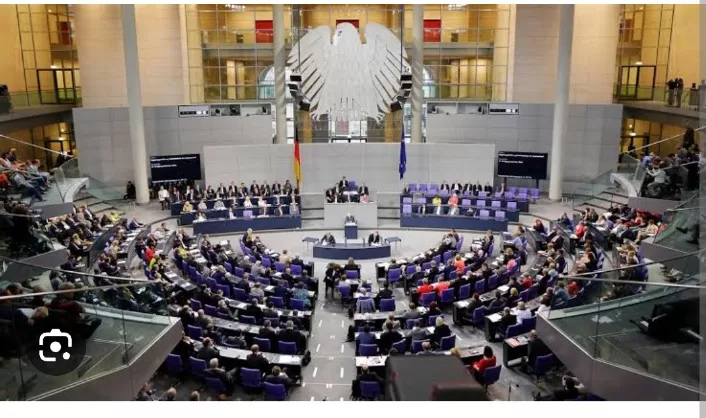Berlin, Germany finds itself grappling with a severe budget crisis, a consequence of its struggling economy. Chancellor Olaf Scholz, set to address parliament on Tuesday, will outline strategies to address the crisis that compels the government to make cuts in the nearly finalized spending plan for the upcoming year. This move is anticipated to further impede the progress of the already worst-performing major economy globally.
The crisis arises from a recent decision by the constitutional court, voiding approximately 60 billion Euros (USD 65 billion) in spending for the current and next year. This decision, citing strict legal limits on borrowing entrenched in the country’s constitution, has created a challenging scenario for the government. A two-thirds majority in parliament is required to soften these limits, a process that could take years, possibly extending beyond the scheduled national elections in 2025.
Economists express concerns that spending cuts, seen as an imminent necessity, will only compound the challenges faced by Europe’s largest economy. Factors such as Russia cutting off cheap natural gas supplies and escalating energy costs are already squeezing businesses and affecting households.
Vice Chancellor Robert Habeck criticized the situation, stating, “We’ve voluntarily tied our hands behind our backs, and we’re going into a boxing match.” He highlighted the outdated nature of debt rules, suggesting that the current landscape demands a more flexible approach. Habeck referenced substantial investments by the U.S. and China in green technology, emphasizing that Germany needs the freedom to respond adequately.
The constitutional court’s ruling affects not only the disallowed spending of 60 billion Euros but also has implications for other national and local expenditures using a now-rejected accounting maneuver. This could potentially cover as much as 130 billion Euros in expected spending through 2027.
To comply with the court’s decision, the government is altering the 2023 budget by declaring an emergency, citing Russia’s cutoff of natural gas supplies and higher energy prices. However, this approach may only offer a temporary solution, requiring continuous emergency declarations.
Holger Schmieding, chief economist at Berenberg bank, estimates that, without another emergency declaration in 2024, the government would need to address shortfalls of approximately 30 to 40 billion Euros, with an additional 20 to 30 billion Euros in 2025 compared to earlier plans.
The budget predicament presents an ironic situation, considering Germany’s relatively small long-term debt compared to other advanced democracies. The now-banned spending targeted long-term issues affecting economic growth, such as investments in renewable energy sources and digitalization.
While there are calls to loosen debt limits to facilitate a more robust government response, the current coalition led by Scholz lacks the two-thirds majority needed for such changes. Opposition from conservative forces, particularly the Christian Democrats who initiated the legal challenge, further complicates the situation.
In a twist, even some opposition state governors advocate for relaxing debt limits. Berlin Mayor Kai Wegener, a member of the Christian Democrats, labeled the provision “a brake on the future,” highlighting the growing consensus for a reevaluation of Germany’s fiscal policies.
By PTI




